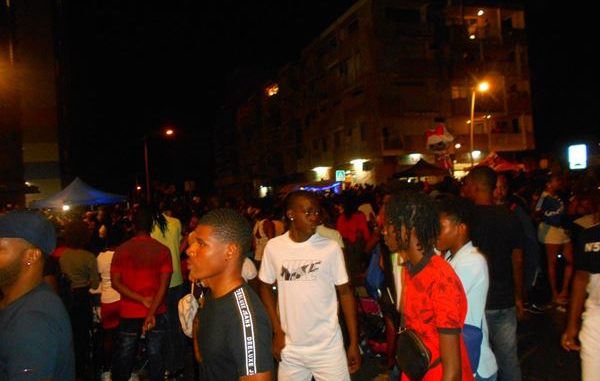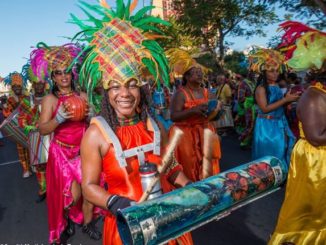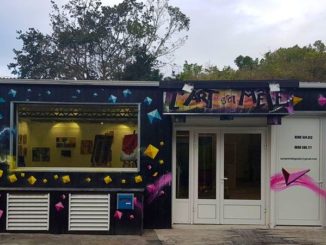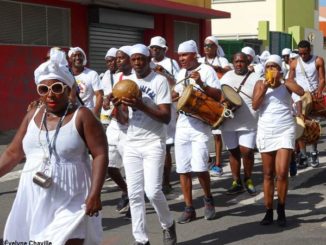
Among the 13 Caribbean islands that have celebrated carnival during this traditional time of year, which runs from January 1 to Ash Wednesday, only Haiti has decided to officially maintain its national carnival in the city of Port-de-Paix from February 14 to 16, 2021. The theme: “Ann kolé zepòl pou Ayiti dekolé”. The President of the Republic Jovenel Moïse made this announcement, incomprehensible to many given the state of health of the country, on 06 December 2020. Several groups have been invited such as T-Vice, Sweet Micky, Djakout # 1, RockFam, Boukman Eksperyans, Kanpèch, Zikòs, Bel Look, Harmonik, Ekip, Enposib, Buzz, Tabou Combo, Tropicana d’Haïti, Septentrional, and Rebèl, Skhal Mizik and Kazi Mizik from Port-de-Paix musical groups. It remains to be seen what the consequences of these large gatherings will be on the spread of this coronavirus in the country.
The other islands did not want to run the risk of exploding the number of people infected with Covid-19 and preferred to cancel the celebrations, or with some adaptations. And the least that can be said is that the vast majority of Caribbean carnival lovers, although disappointed not to be able to have fun or disoriented not to be able to earn a living, followed to the letter the instructions of the political and health authorities.
However, in the French Caribbean, more precisely in Martinique and Guadeloupe – and even further on the South American continent, in French Guiana – carnival lovers were seen violating prohibitions and organizing what have been called “wild” or “maroon” deboulés or parades ; the term “maroon” used by some almost evokes the struggles waged by “maroon negroes” during slavery .
It was as if all of a sudden Covid-19 had allowed some Martinicans, Guadeloupeans and even Guyanese to discover or imagine all the virtues brought to human beings by carnival (love, communion, solidarity, free expression etc.) and the imperative need of it for the development of our societies. In fact, it seems to us that it was the first time that carnival received so many positive qualifiers. Yet these French territories, Guadeloupe in particular, have already experienced years without carnival celebrations. Indeed, in 2009, because of the general strike due to the high cost of living which had inflamed Guadeloupe as well as Martinique and brought thousands of demonstrators into the streets from January to March and for about forty days, carnival had not even been mentioned. Perhaps the demonstrators had equated these protest marches with carnival parades?
During this 2021 carnival, Martinique distinguished itself very early with these famous “wild” parades. Every weekend, the number of participants increased in the streets of the capital, Fort-de-France, and on Mardi Gras, there were thousands with or without anti-Covid-19 masks on the highway dressed in red and black to honour King Vaval. It was then wondered if Martinican people had been aware that their island had been on lockdown for a second time at the same time as France from 30 October to 15 December 2020 and that the highly contagious “English variant” of this coronavirus had already been discovered on their territory and that it was affecting around twenty people at that time. “It’s tradition”, repeated some carnival lovers who felt they had the right to feast despite this pandemic. The greatest misunderstanding was when the prefectural authority in Martinique gave its approval for the organisation of a kind of carnival-show at the Dillon stadium from Dimanche Gras (14 February) to Mardi Gras (16 February). We then heard a member of the organization say on the radio that in normal times, this sports space could accommodate 18,000 people, and that only 2,500 people were expected to celebrate by respecting the barrier gestures with performances by several groups and that, for him, there was no danger since this stadium was currently hosting football matches. Were these two events comparable because a match lasts only 90 minutes and not several hours, there are rarely thousands of fans at the stadium in Covid’s time, apart from the two teams and the referees, and there are not dozens of people following each other on the lawn? In order to attract the maximum number of participants, you just had to register but, as in a burst of responsibility, less than a thousand carnival lovers had come on the first day and this “authorized” carnival was a bitter failure. This also demonstrated that the Martinique and Guadeloupe carnivals take place above all in the streets and not in enclosed spaces.
In Guadeloupe, the charter established by the prefectural authority in collaboration with the Regional Council of Guadeloupe, the Departmental Council of Guadeloupe, the association of mayors of Guadeloupe, the regional health agency and the carnival associations to regulate group activities (such as rehearsals in their premises with a maximum of 50 people) was respected instead. It should be said that €200,000 (€100,000 from the Ministry of Culture and €50,000 from the Regional Council and the Departmental Council of Guadeloupe) had been put on the table on condition that the established rules were followed and that a project was submitted. So even the “skin groups” with the most virulent criticism of the colonial system and the French state had every interest in getting into the mould to collect this money ; groups that did not have time to prepare a project could even do so after the carnival period. And then it was found that the Mas groups that previously focused only on carnival suddenly said that they were “cultural associations” that offered various activities throughout the year… a way of saying “not bad!” to the Prefect, in other words that his ban had no impact on them, which is perfectly false.
But this cancellation of carnival did not prevent some “wild” or “maroon” parades from appearing in the streets of Pointe-à-Pitre, Les Abymes, Basse-Terre de Sainte-Anne, etc. The most important of these forbidden parades took place on Sunday 14 February, the departure took place in front of the Palais de la Mutualité in Pointe-à-Pitre (a building which served as headquarters for some political, trade union and cultural organizations during the long strike of 2009) and the judicial authorities promised firm sanctions to the participants. “During carnival, it is forbidden to ban”, said a group president in an attempt to explain the behaviour of these outlawed carnival lovers.
In the English, Spanish and Dutch-speaking Caribbean, we have not heard of this type of disobedience in order to carry out carnival at all costs. Rather, the primary concern was how to obtain the necessary doses to set up a vaccination campaign. With a heavy heart, carnival lovers of these islands understood that this 2021 edition was going to be unprecedented and, even if they wanted to organize it, there were no tourists to watch them, compliment them, take part in the festivities and above all leave currency because for them carnival is a business, an industry…
So, how can we explain the behaviour of some carnival lovers in the French Caribbean, that is to say in Martinique and Guadeloupe? Did these outlawed carnival lovers act thus, thinking that France has, in any case, the means to take care of an increase in the number of people infected by Covid-19 or its “variants of various nationalities”? Can the political status of Guadeloupe and Martinique explain this desire not to respect the cancellation of the carnival parades decided by the Prefect, the representative of the French government in these territories? If Guadeloupe and Martinique were independent and carnival had been banned, would these outlawed carnival lovers have walked throught the streets or would they have realized the limited health care available in their territories, as on many Caribbean islands?



